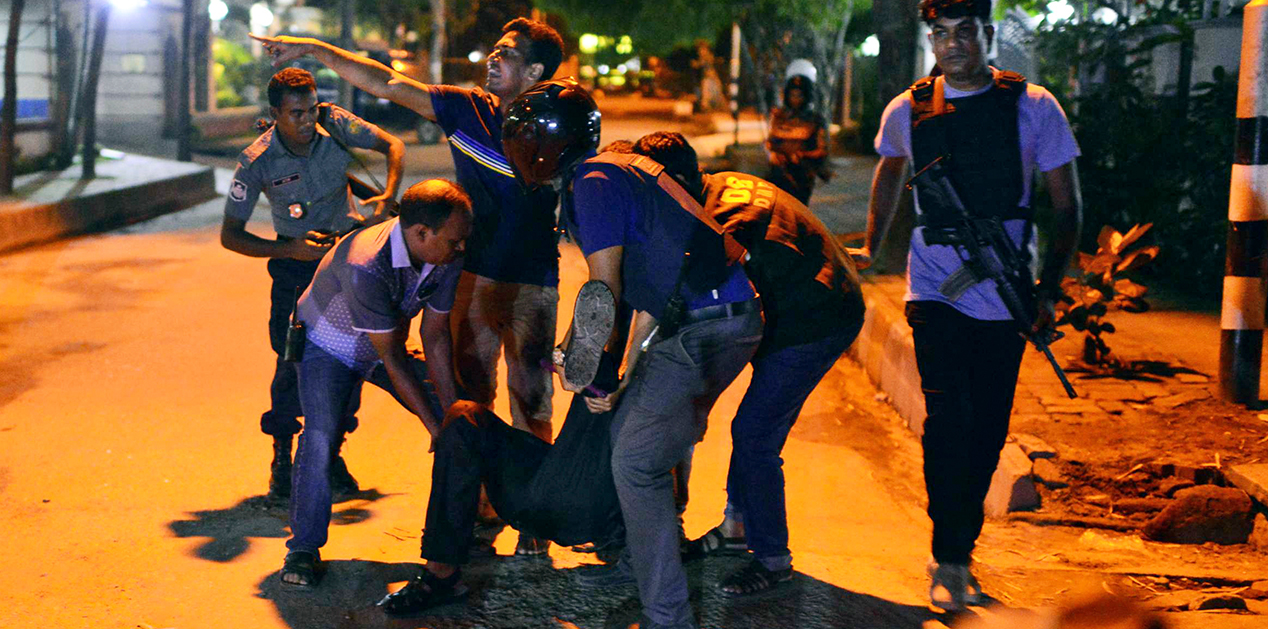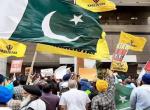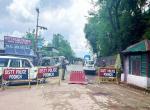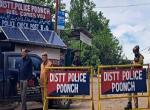"This was waiting to happen"- this is how the initial reaction of shock and disbelief expressed itself. A stunned Bangladesh that has always believed in and practiced moderate and tolerant Islam, just could not come to terms with the dastardly act of senseless violence and brutal killing of so many innocent people, ostensibly in the name of Islam and that too in the holy month of Ramadan. A visibly disturbed Prime Minister Sheikh Hasina said so in as many words, "It was an extremely heinous act. What kind of Muslims are these people? They don't have any religion. “(Times of India)
According to eye witness accounts supplemented by official briefings and media report, on the last Friday of Ramadan, July 1, around 9:20 pm (BST) a group of seven well armed terrorists stormed into the popular Holey Artisan Bakery/restaurant in the upscale suburb of Gulshan in the heart of Dhaka. They quickly took the staff and customers hostage even though a few, including some members of the staff, did manage to quietly escape through the back door before the terrorists took firm control. They seemed fairly well trained, certainly well briefed and rehearsed in that they quickly secured the front door, asked staff to switch off the lights and covered CCTV cameras with clothes. In the process, they had taken 33 hostages comprising some locals and many foreigners.
What followed thereafter was the unfolding of a gruesome act of terror in which helpless innocent people were brutally murdered ostensibly for not being Muslims or not able to recite some verses from the Holy Quran or for simply being foreigners. It was not a hostage drama in the classical sense. The hostage takers had no demands to make and therefore no negotiations to participate in. They simply kept slitting throats through the night! In the process, they killed 20 hostages comprising nine Italians, seven Japanese, two Bangladeshis, one American and a 19-year young Indian girl who had come from Berkley USA to spend her holidays with parents.
Special Forces were quickly mobilized, security cordon clamped, naval commandos anchored in the lake behind the hotel etc. In the initial moments, local police took the terrorist on but in the process, lost two of their colleagues. In the end, after over 10 hrs of high drama and intense tension, the final storming of the restaurant by the Special Forces took place in the morning of Saturday. Six terrorists were killed and significantly one was captured alive. Thirteen hostages including some Indians, Japanese and two Sri Lankans were rescued.
International community was quick to rally behind Sheikh Hasina’s government. Indian Prime Minister Narendra Modi spoke to her and condemned the ‘despicable act’. President Pranab Mukherjee also sent message of sympathy and support. US President Barack Obama wanted to be kept briefed while State Department expressed abiding solidarity with the people of Bangladesh in their fight against terrorism. In a statement, EU also expressed similar sentiments. His Holiness Pope Francis described the senseless violence as an offence against God and humanity. Similar words of sympathy and support came in from Italy, Malaysia, Pakistan etc. But given the nature of Bangladesh politics, even in this hour of national mourning, opposition leader Khaleda Zia, Chairperson BNP, in a written statement said, "The uncivilized and undemocratic extremist forces can go for a long term war, affecting peace and security if we fail to eliminate them now ". It certainly did not outright condemn the act of terror.
This was easily the worst ever terror incident experienced by Bangladesh which has been other wise hit by a wave of killings of secular blogger , progressive writers, moderate thinkers, foreign aid workers, Hindu priests and such others. These activities have been going on for over two years now despite prompt and stern action by the police and targeted intelligence driven raids carried out by the police special branch personnel, leading to the arrest of thousands of radical and criminal elements as late as even last fortnight.
The government has recognised the phenomenon of rapidly increasing radicalisation in the country and has also initiated measures to deal with the same at different levels. But the virus is growing rapidly and it seems Bangladesh has not yet reached a definitive conclusion on the identity of forces or groups behind the killing of secular, progressive campaigners. After each such incident, including the latest one, a couple of well identified radical extremist such as Jama'at ul Mujahideen Bangladesh (JMB), or Ansarullah Bangla Team (ABT), also called Ansar Bangla or Al Qaeda in the Indian Subcontinent(AQIS) or ISIS claim responsibility for the event. Sometimes, as in the case of the Dhaka attack, ISIS/AQIS also claim direct responsibility without disputing the claim of the local entity. However, government of Bangladesh does not subscribe to the view that either of the two international Islamic groups have any formal presence in the country. Therefore, such claims are, as a rule, immediately countered by the state authorities going right up to the level of the Prime Minister herself declaring that groups like Al Qaeda or ISIS do not have presence in the country. Blame is firmly placed either on political forces opposed to the ruling dispensation or on home grown terrorists as has been the case this time.
So, what is the truth? Do Al Qaeda and/or ISIS have a base in the country or are operating through 'franchise ' in the shape of JMB or ABT etc.? Strategic experts believe that the truth lies somewhere in between. AQIS and ISIS brand of highly radicalised Islam has gained significant traction in the sub-continent. Both organisations are competing for influence in the region. While they may not be having a formal tie-up with the local group of radicals, it is convenient for them to claim ownership of any high profile incident to enhance their brand appeal in the region for strategic advantage. The fact also remains that AQIS and ISIS literature have been regularly recovered in the recent past in the course of police raids on the ABT or JMB modules. The fact also remains that these local groups have come to adverse notice for using the AQIS or ISIS brand names in their recruitment and radicalization related activities. Perhaps, the interrogation of one of the terrorists captured alive during the Dhaka operation, would shed greater light on the network responsible.
For the present, pending results of the investigation, one would like to go by the government view that the despicable incident was the handiwork of ‘home grown’ terrorists. None the less, the incident needs to be viewed as a significant shift in the agenda and modus operandi of the terrorists. Their agenda does not seem to be limited to keeping the ruling dispensation on the edge. It is likely to be much more sinister with long term objective of promoting radical Islam in the country and beyond; certainly impacting India. It is therefore, imperative for the intelligence and security establishments in both countries to take the Dhaka incident as a serious wake up call and evolve a joint mechanism to deal with the emerging challenges in an effective manner. India has decades of experience in dealing with terrorism and has fairly well developed counter-terrorism capabilities. Bangladesh has a done a great deal for us. It’s our turn to reciprocate.
Published Date: 4th July 2016, Image Source: http://www.rushincrash.com
(Disclaimer: The views and opinions expressed in this article are those of the author and do not necessarily reflect the official policy or position of the Vivekananda International Foundation)










Post new comment